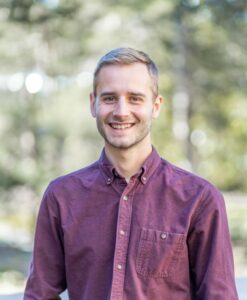
Introducing Faithful Resilience: A Resource from Creation Justice Ministries
A Leadership Commons Open House
Occurred on Wednesday, November 13, 204
This November, we were pleased to welcome Avery Davis Lamb, Executive Director of Creation Justice Ministries, for a mid-day gathering exploring CJM’s Faithful Resilience resources. These resources have been developed through years of research and hands-on experience with congregations, as a way of helping faith communities address fundamental questions about their capacity for resilience in a climate-changed world.
The Faithful Resilience guide is intended to be flexible for the needs of each congregation. It can be used as a 6-week sermon series incubator, Bible study lesson plan, or social justice issue guide. This six-part guide can be used to start a conversation in your faith community about climate change and resilience. Throughout, follow-up resources, opportunities for action, and long-term visioning exercises are included so that this six-part series is the start of a long-term path toward climate resilience in your church.
We invited you to join us for a conversation with Avery Davis Lamb about how this resource can be of use to you and your congregation or spiritual community.
 Meet Our Presenter
Meet Our Presenter
Avery Davis Lamb is the Executive Director of Creation Justice Ministries. Creation Justice Ministries’ mission is to educate, equip, and mobilize communions and denominations, congregations, and individuals to protect, restore, and rightly share God’s creation.
Avery has a background in both ecological research and faith-based environmental organizing, studying ecology in various ecosystems and organizing faith communities across the country in support of action on environmental justice. Previously he has worked for Sojourners and Interfaith Power & Light. He serves on the board for The Center for Spirituality in Nature and is a Fellow with the Re:Generate Program at Wake Forest Divinity School and the Foundations of Christian Leadership Program at Duke Divinity School.
Avery has a Bachelor of Arts in Biology and Sustainability from Pepperdine University, a Master of Environmental Management in Ecosystem Science & Conservation with a certificate in Community-Based Environmental Management from the Nicholas School of the Environment at Duke University, and a Master of Theological Studies, with a certificate in Faith, Food & Environmental Justice from Duke Divinity School. His research focuses on the role of religious communities in building climate resilience and adaptation, with emphasis on the virtue of “climate hospitality.”

